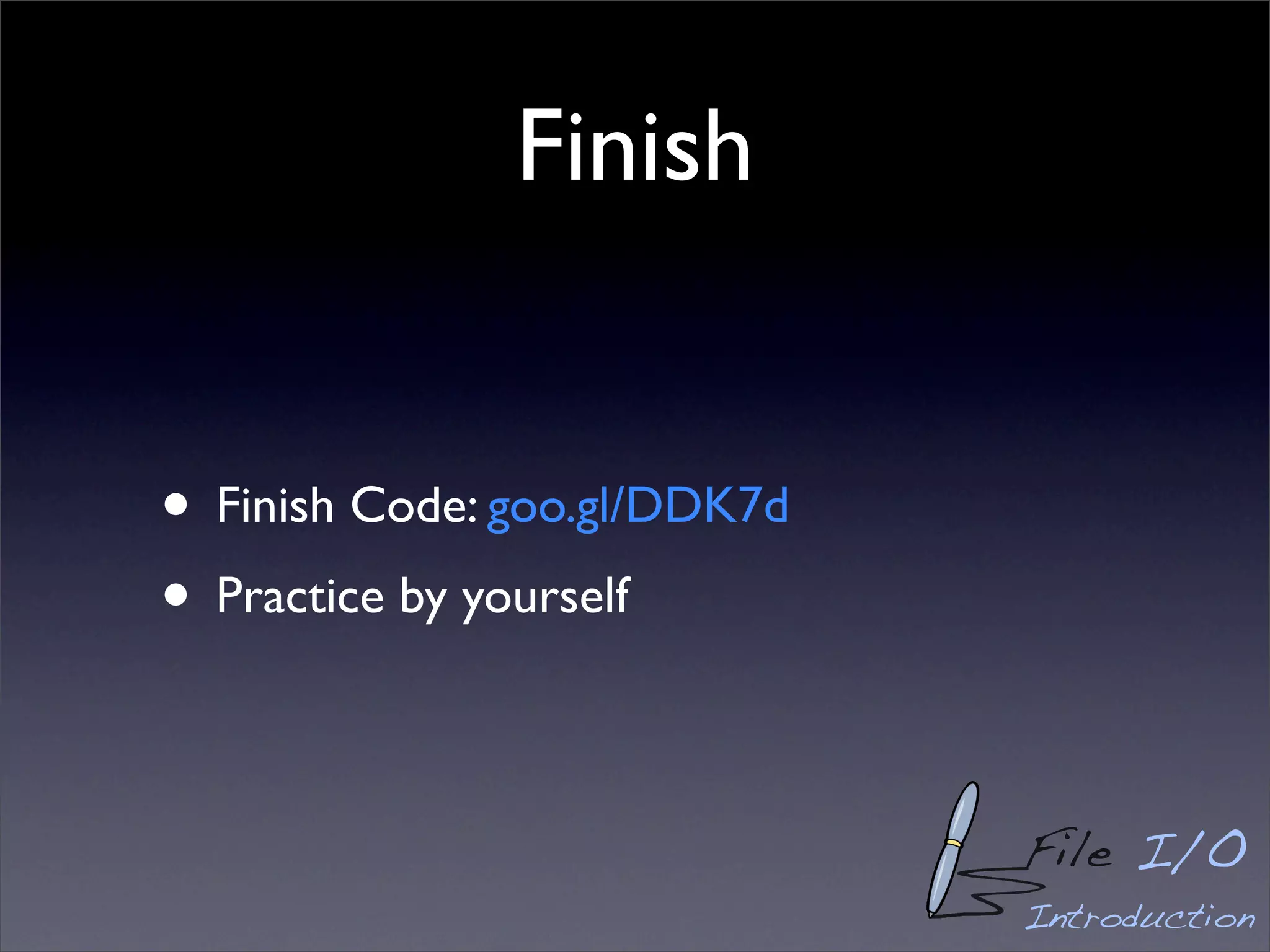This document discusses Python file input/output (I/O) operations. It introduces functions for loading and saving number data from/to files. The load_numbers function opens a file, reads each line by splitting on commas into a name and number, and saves these to a dictionary. The save_numbers function opens a file and writes each dictionary key-value pair on its own line with comma separation. Completing these functions involves properly opening, reading, and closing files while parsing the data format.

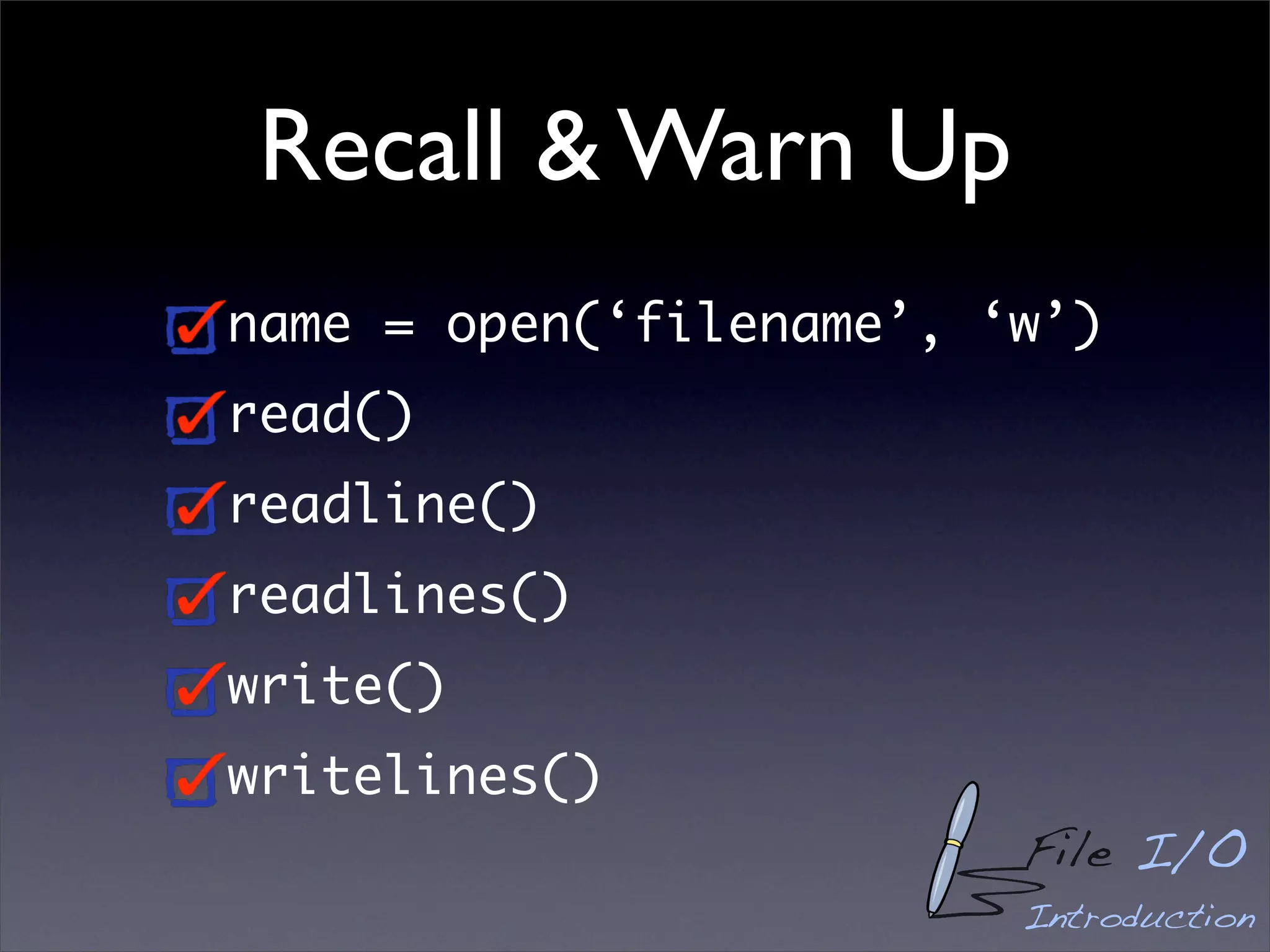

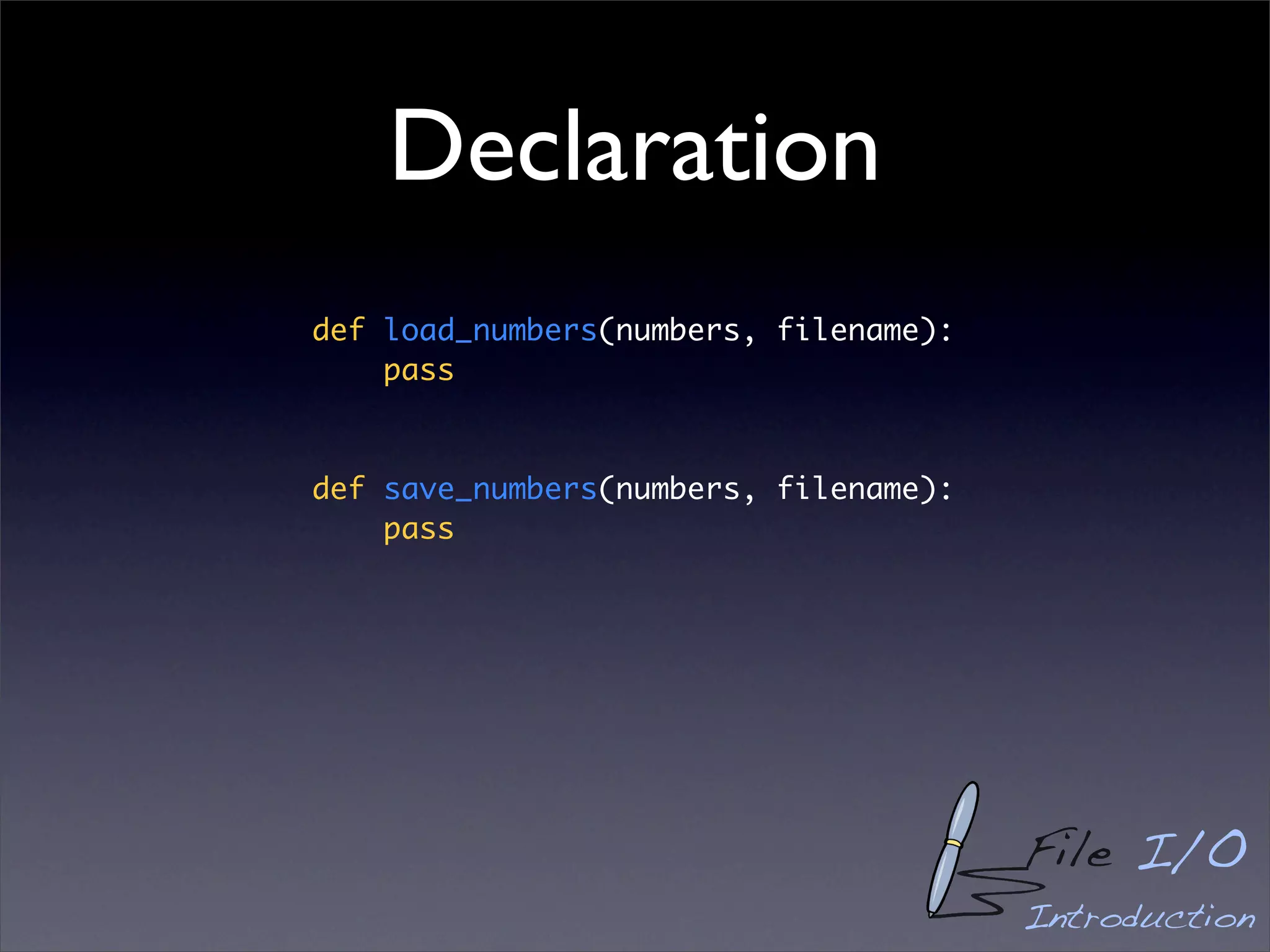
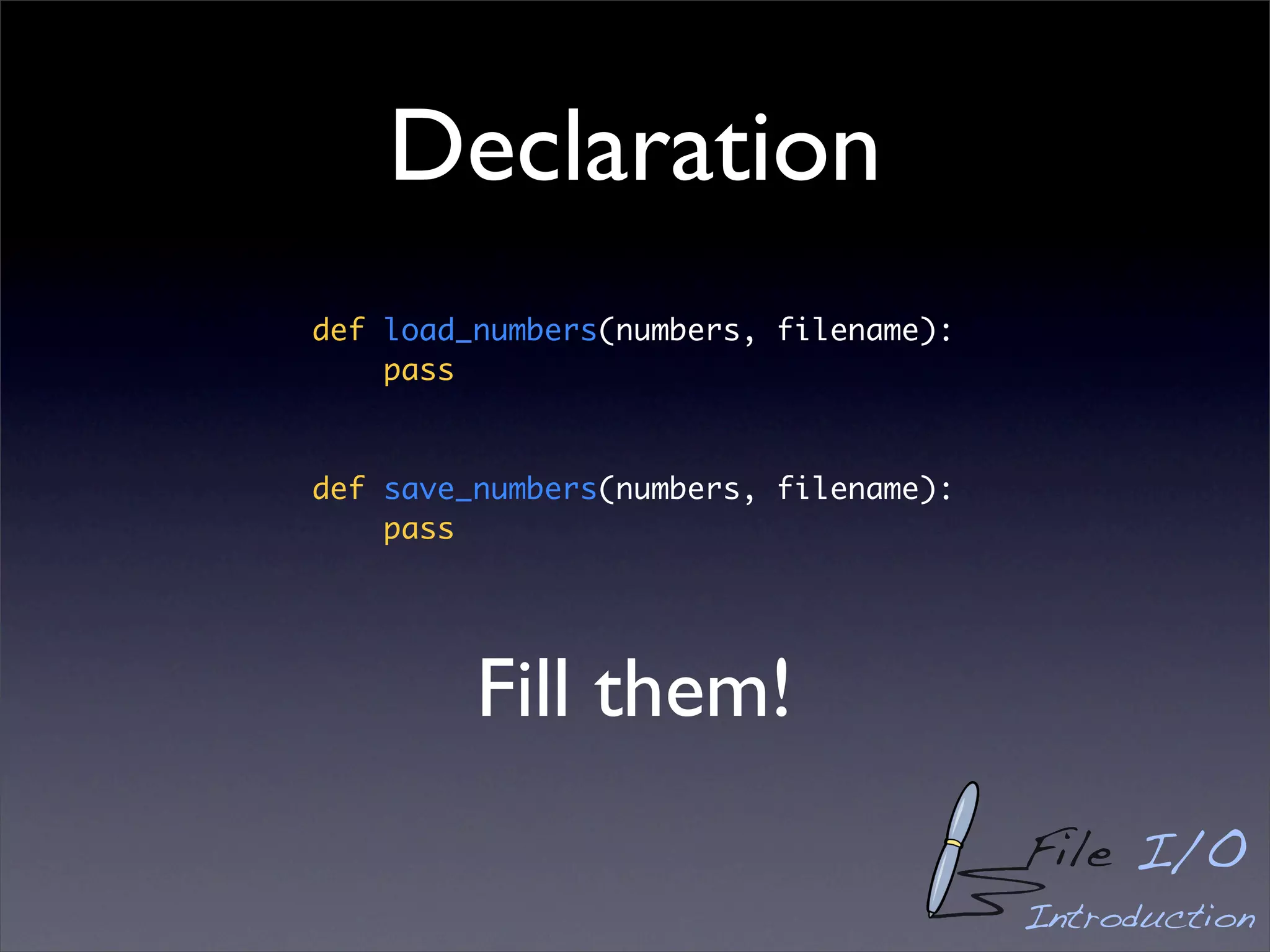
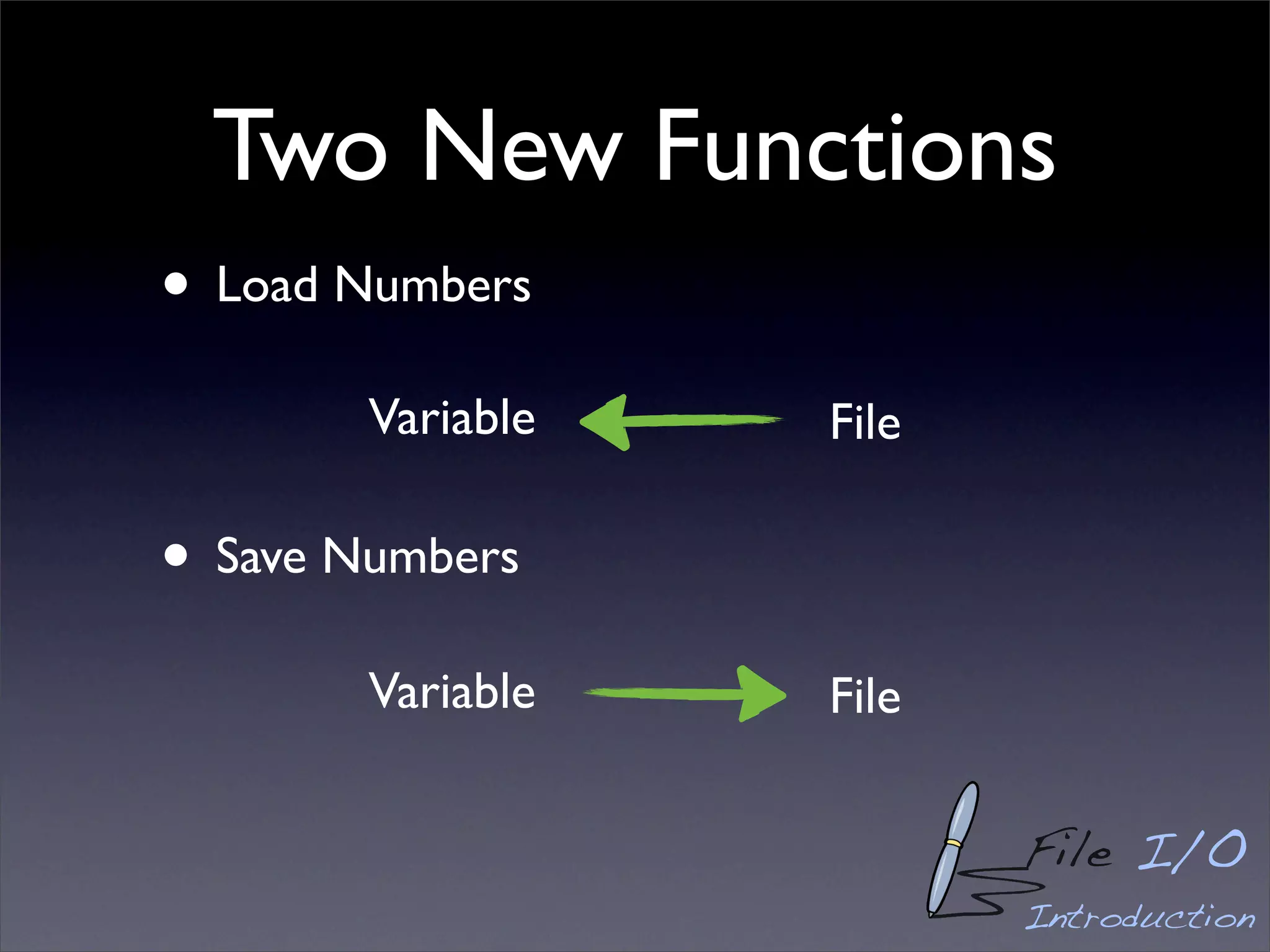
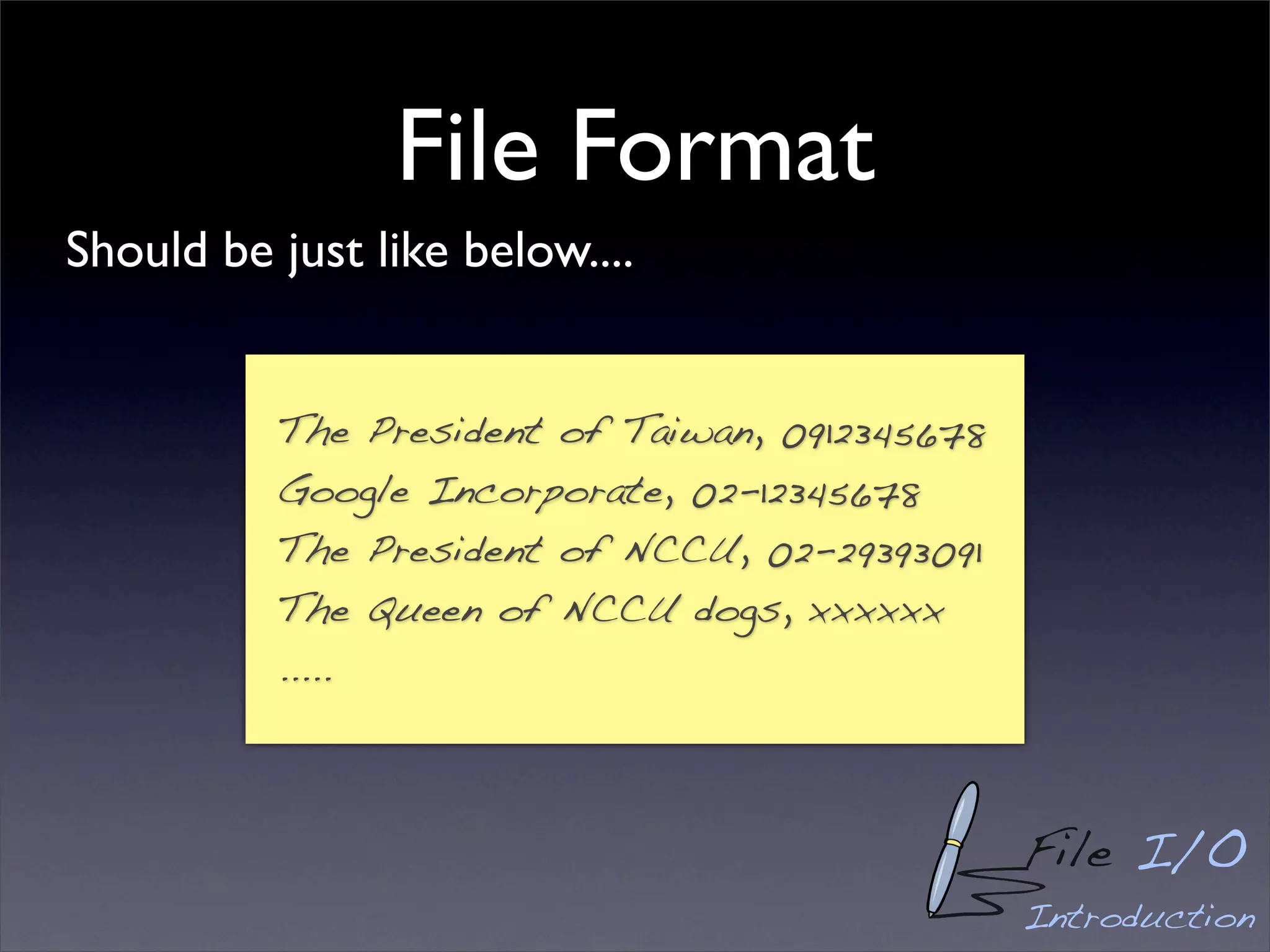
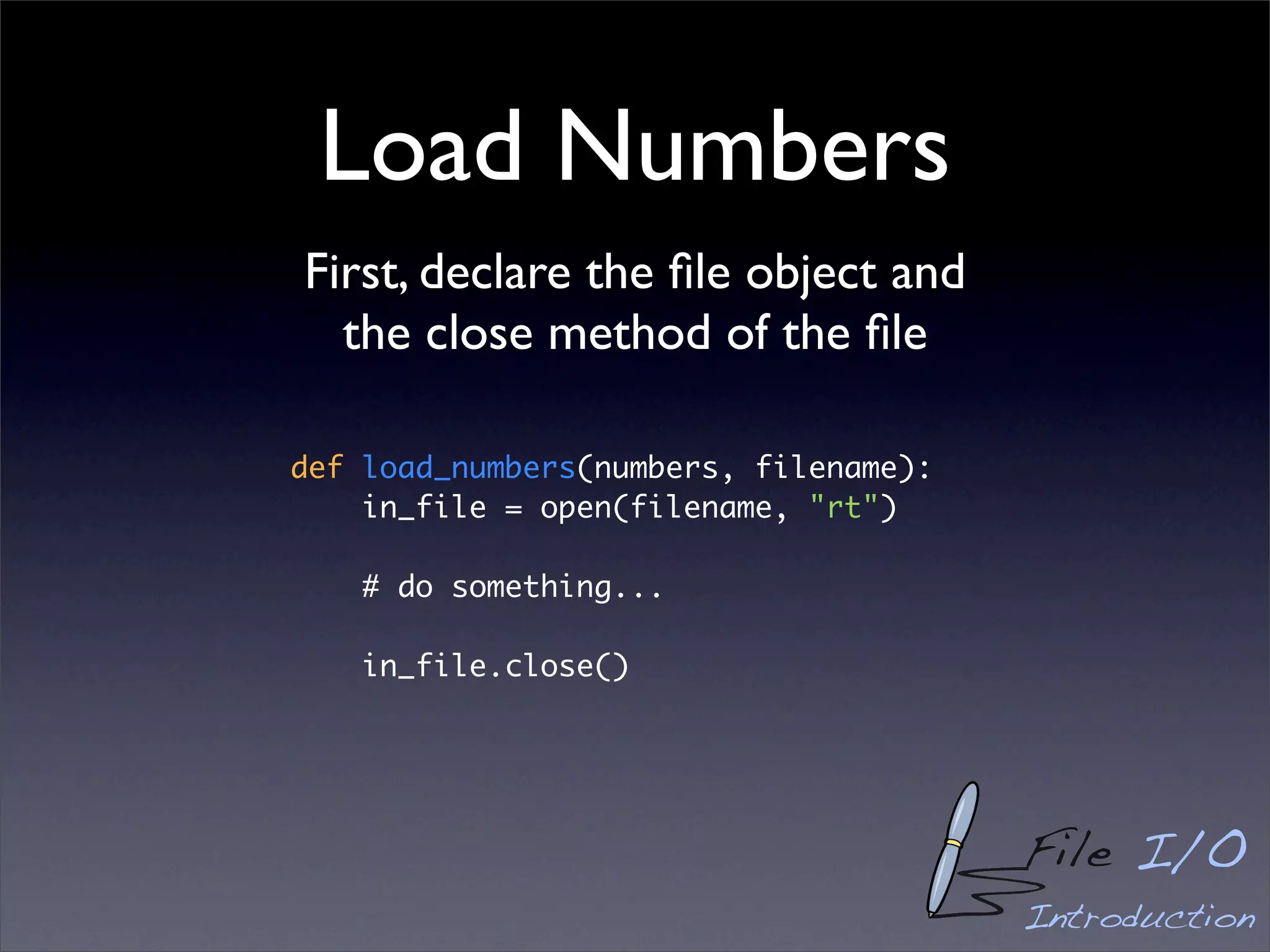
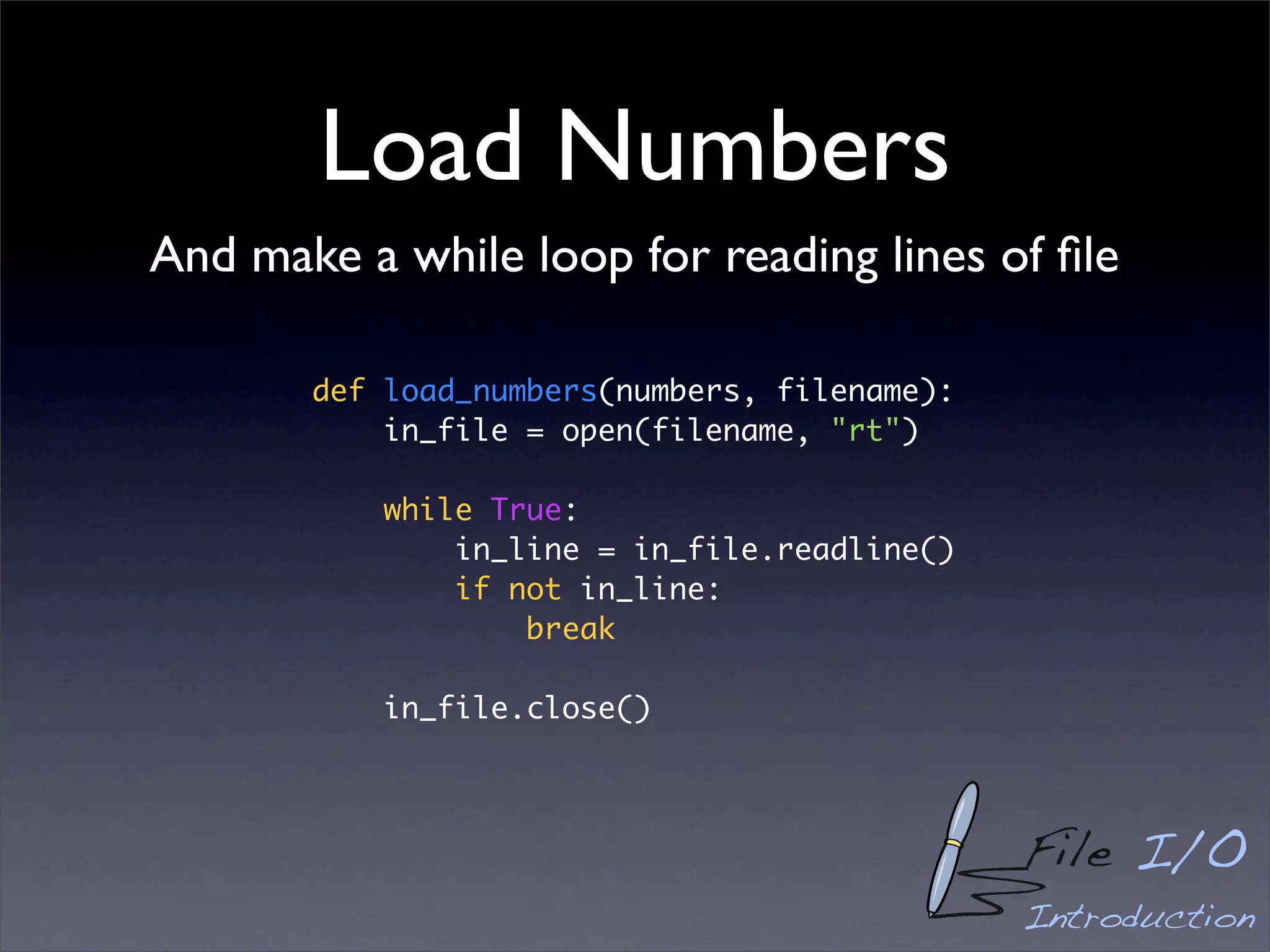
![Load Numbers Remove the last character of newline(“n”) def load_numbers(numbers, filename): in_file = open(filename, "rt") “The stringn” while True: in_line = in_file.readline() if not in_line: break in_line = in_line[:-1] “The string” in_file.close() File I/O Introduction](https://image.slidesharecdn.com/fileio-101213100021-phpapp01/75/Python-FileIO-10-2048.jpg)
![Load Numbers def load_numbers(numbers, filename): in_file = open(filename, "r") while True: in_line = in_file.readline() if not in_line: break in_line = in_line[:-1] name, number = in_line.split(‘,’) # split to two parts numbers[name] = number # save them to numbers in_file.close() File I/O Introduction](https://image.slidesharecdn.com/fileio-101213100021-phpapp01/75/Python-FileIO-11-2048.jpg)
![Save Numbers def save_numbers(numbers, filename): out_file = open(filename, "w") for k, v in numbers.items(): out_file.write(k + "," + v + "n") out_file.close() Multiple assignment: (k, v) = [“name”, “phone”] >>> k “name” >>> v “phone” File I/O Introduction](https://image.slidesharecdn.com/fileio-101213100021-phpapp01/75/Python-FileIO-12-2048.jpg)
